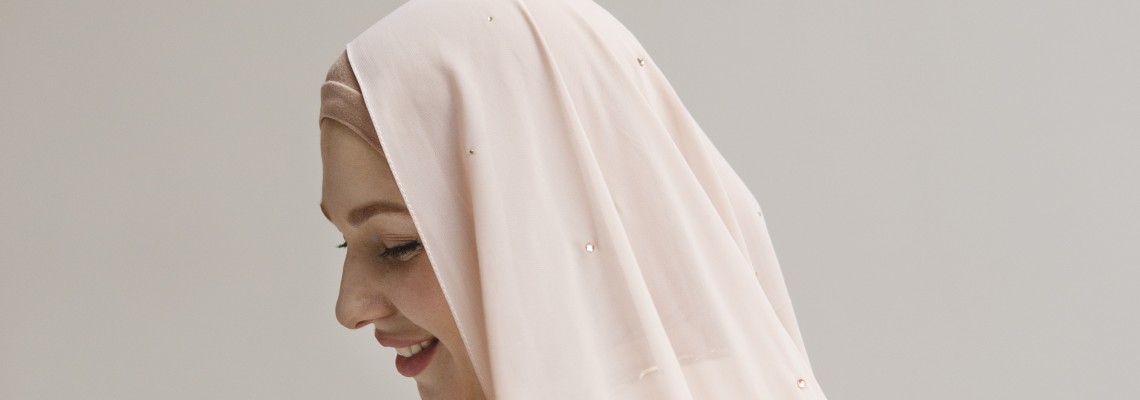
the Tapestry of Turkish Scarf Manufacturers: A Deep Dive for Importers
Turkey's textile industry, steeped in rich heritage and innovation, has established itself as a global leader. This reputation extends to a thriving scarf manufacturing scene, catering to a diverse range of styles, materials, and functionalities. If you're an importer seeking reliable partners within this dynamic sector, this comprehensive guide equips you with valuable insights and resources to navigate your search.
Established Powerhouses: Hallmarks of Quality and Scale
Birel Tekstil: A titan in the Turkish textile industry since 1975, Birel Tekstil has carved a niche in scarf production. Their extensive portfolio encompasses an array of scarves, shawls, and headscarves, catering to international markets. Their unwavering commitment to high-quality materials, from luxurious silk to breathable cotton, ensures their products meet the highest standards. Birel Tekstil's design team stays ahead of the curve, crafting contemporary pieces that resonate with fashion-conscious consumers worldwide.
MRM Textile: Specializing in pashmina scarves, MRM Textile prioritizes using the finest materials like cashmere and wool blends to create luxurious and elegantly crafted products. Their commitment to meticulous quality control positions them as a premium partner for discerning importers seeking high-end scarves. MRM Textile's focus on intricate designs and unique embellishments, such as hand-embroidered patterns or delicate beadwork, elevates their scarves from mere accessories to statement pieces.
Beyond the Big Names: Unveiling Hidden Gems Tailored to Specific Needs
Egypt-Turkish Scarf Factory: This manufacturer offers private label solutions, allowing you to personalize their high-quality scarves with your own brand logo and design elements. This flexibility empowers you to establish your unique brand identity within the market and cater to a specific customer niche. The Egypt-Turkish Scarf Factory offers a variety of fabrics and styles as a base for customization, ensuring you can find the perfect canvas for your brand vision.
Tugra Tekstil: If you're seeking a manufacturer specializing in a vast array of scarf styles and functionalities, Tugra Tekstil is a strong contender. Their product range encompasses everything from classic silk scarves perfect for evening wear to cozy winter scarves in chunky knits. They also cater to beachgoers with lightweight, quick-drying cover-ups. This extensive portfolio ensures you can find the perfect fit for your target market, no matter the season or desired function.
Additional Resources to Streamline Your Search for the Ideal Partner
B2B Platforms: Online directories like Turkey Textile Manufacturers (https://tgsd.org.tr/en/about/) or Textile Export (https://www.textilegence.com/en/turkish-textile-exports-stand-still-in-2022/) act as a gateway to connect with a multitude of Turkish scarf manufacturers. These platforms offer a convenient way to refine your search based on location, minimum order quantity, and specific product categories, allowing you to target manufacturers that best align with your business needs.
Trade Shows: A Multi-Sensory Experience for Evaluating Quality: Major Turkish cities like Istanbul host textile trade shows throughout the year. Attending these events allows you to interact with manufacturers directly. This provides a valuable opportunity to assess product quality firsthand by examining the fabrics, stitching, and overall craftsmanship. You can also discuss customization options, pricing structures, and minimum order quantities in a face-to-face setting, fostering a stronger connection with potential partners.
Industry Publications: Staying Ahead of the Curve with Expert Insights: Reputable trade publications catering to the textile industry, such as Turkish Textile Magazine (https://www.tekstilnews.com/) or Istanbul Textile Journal ([invalid URL turkish textile magazine ON İstanbul Tekstil ve Konfeksiyon İhracatçı Birlikleri [invalid URL removed]]), often feature articles or directories highlighting prominent Turkish scarf manufacturers. Subscribing to such publications keeps you updated on the latest trends in scarf design, materials, and production techniques. Additionally, these publications might provide insights into emerging Turkish manufacturers poised for future success.
Remember: When vetting potential partners, consider these crucial factors beyond just price and product range:
- Minimum Order Quantity (MOQ): Ensure the manufacturer's MOQ aligns with your business needs. If you're a startup or boutique store, a manufacturer with a lower MOQ might be preferable.
- Compliance with Regulations: Verify the manufacturer adheres to international safety and quality standards, such as OEKO-TEX certification, which ensures textiles are free from harmful chemicals. This is especially important if you're planning to sell your scarves in markets with strict regulations.
- Customization Options: Explore the level of customization offered, from private labeling to bespoke designs. This can be crucial for differentiating your brand in a competitive market.
Identifying Strategic Partners: A Guide to Turkish Scarf Manufacturers
Turkey's textile industry, renowned for its rich heritage and innovative spirit, has established itself as a global leader. This reputation extends to a thriving scarf manufacturing scene, catering to a diverse range of styles, materials, and functionalities. For importers seeking reliable partners within this dynamic sector, navigating the multitude of manufacturers can be a challenging task. This comprehensive guide equips you with valuable insights and resources to streamline your search and identify the perfect Turkish partner for your scarf import business.
Dominant Players in the Turkish Scarf Market:
Birel Tekstil: A cornerstone of the Turkish textile industry since 1975, Birel Tekstil has carved a niche in high-quality scarf production. Their extensive portfolio encompasses an array of scarves, shawls, and headscarves, catering to international markets. They prioritize using luxurious materials like silk and breathable cotton, ensuring their products meet the highest standards. Birel Tekstil's design team stays ahead of the curve, crafting contemporary pieces that resonate with fashion-conscious consumers worldwide.
MRM Textile: For discerning importers seeking premium quality, MRM Textile stands out as a specialist in pashmina scarves. They prioritize using the finest materials like cashmere and wool blends to create luxurious and elegantly crafted products. Their unwavering commitment to meticulous quality control positions them as a premier partner. MRM Textile's focus on intricate designs and unique embellishments elevates their scarves from mere accessories to statement pieces, perfect for high-end boutiques.
Unveiling Niche Expertise for Targeted Acquisitions:
Egypt-Turkish Scarf Factory: This manufacturer offers a unique value proposition – private label solutions. They allow you to personalize their high-quality scarves with your own brand logo and design elements. This flexibility empowers you to establish your unique brand identity within the market and cater to a specific customer niche. The Egypt-Turkish Scarf Factory offers a variety of fabrics and styles as a base for customization, ensuring you can find the perfect canvas for your brand vision.
Tugra Tekstil: If you require a manufacturer with a vast array of scarf styles and functionalities, Tugra Tekstil is a strong contender. Their product range caters to diverse market demands, encompassing classic silk scarves for evening wear to cozy winter scarves in chunky knits. They also cater to beachgoers with lightweight, quick-drying cover-ups. This extensive portfolio ensures you can find the perfect fit for your target market, no matter the season or desired function.
Facilitating Seamless Partnerships: Essential Resources
B2B Platforms: Online directories like Turkey Textile Manufacturers (https://tgsd.org.tr/en/about/) or Textile Export (https://www.textilegence.com/en/turkish-textile-exports-stand-still-in-2022/) act as a gateway to connect with a multitude of Turkish scarf manufacturers. These platforms offer advanced search functionalities to refine your search based on location, minimum order quantity (MOQ), and specific product categories. This allows you to target manufacturers that best align with your business needs and production requirements.
Trade Shows: Cultivating Relationships and Assessing Quality: Major Turkish cities like Istanbul host textile trade shows throughout the year. Attending these events allows for direct interaction with manufacturers. This provides a valuable opportunity to assess product quality firsthand by examining the fabrics, stitching, and overall craftsmanship. You can also discuss customization options, pricing structures, and minimum order quantities in a face-to-face setting, fostering a stronger connection with potential partners.
Industry Publications: Staying Informed and Identifying Rising Stars: Reputable trade publications catering to the textile industry, such as Turkish Textile Magazine (https://www.tekstilnews.com/) or Istanbul Tekstil ve Konfeksiyon İhracatçı Birlikleri (https://www.itkib.org.tr/), often feature articles or directories highlighting prominent Turkish scarf manufacturers. Subscribing to such publications keeps you updated on the latest trends in scarf design, materials, and production techniques. Additionally, these publications might provide insights into emerging Turkish manufacturers poised for future success.
By leveraging the expertise of established players, exploring opportunities with niche manufacturers, and utilizing the recommended resources, you'll be well-equipped to identify strategic partners within the dynamic Turkish scarf manufacturing landscape. Remember, a successful partnership hinges on factors beyond just price. Consider a manufacturer's MOQ alignment, compliance with international regulations, customization options, and commitment to social responsibility to ensure a long-term and mutually beneficial collaboration.
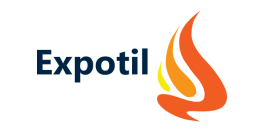




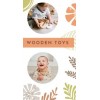
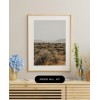
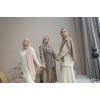

16 Comment(s)
1
1
A 유흥알바 job is a perfect way to get your foot in the door of the entertainment industry.
A quick 먹튀검증 can tell you if a betting site is trustworthy.
If you love webtoons, 뉴토끼 is a must-visit site.
If you're a fan of action-packed stories, 블랙툰 has you covered.
I always have a blast at 강남 가라오케! Great place for groups.
Enjoy a seamless streaming experience with 블랙티비, wherever you go.
So many amazing webtoons to explore on 툰코 주소!
I just finished an amazing series on 비툰, and I need more!
Amazing webtoons, especially the slice-of-life ones on 블랙툰.
I love how 뉴토끼 adds fresh content every week.
Every time I visit 웹툰 다시보기, there’s something new to enjoy.
웹툰 미리보기 lets me enjoy great webtoons without the risk of disappointment.
웹툰 무료보기 is the best source for free comics and webtoons!
툰코 gives you access to the best free webtoons across multiple genres.
Enjoy flawless live sports coverage with 스포츠중계.
Leave a Comment